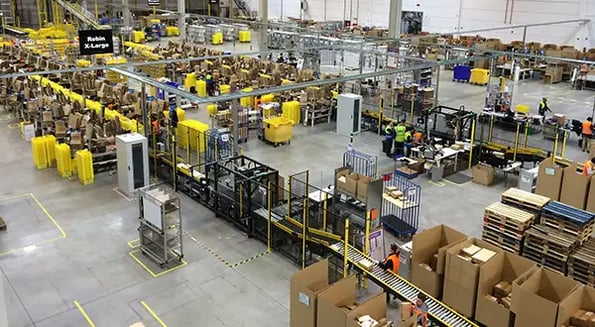Hundreds of employees in Amazon’s massive fulfillment factories spend hours playing video games that gamify their monotonous workdays.

Using dragons, castles, and sports cars, these games boost employee efficiency — in a “fun” way.
But, according to a report from The Washington Post, games that seem fun often manipulate overworked employees.
Fun, games, and optimized output
Amazon’s games are based on actual output: Employees who choose to play MissionRacer, PicksInSpace, Dragon Duel, or CastleCrafter score points in the game by picking items off shelves in real life.
The games are optional, and employees can choose to compete against themselves or others. Some workers report that the games do, in fact, make repetitive warehouse tasks less boring.
But everyone’s shooting for a high score… including Amazon
Amazon says it does not monitor game performance or require employees to participate, and employees don’t technically get bonuses based on games.
But, at the same time, Amazon has increased output requirements for its employees from 100 to nearly 400. Games help with that.
One factory worker reported that, in order to win a race car game, she recently picked nearly 500 items in an hour.
Amazon wants to beat its high score by cutting Prime shipping from 2 days to 1 day — and it will need to force hundreds of employees to break their high scores to do so.
Turning low-skill tasks into high-thrill activities
Amazon is hardly alone in gamifying work: Many businesses offer commission-based pay and bonuses — a type of gamification.
But the games that Amazon and gig economy companies like Lyft, Uber, Postmates, and Wag play are more complex, subconsciously “nudging” employees/contractors to work longer or more unusual hours.
The difference is one of transparency: Sales commissions are contractually definite and clear to employees, while the rules of Amazon’s or Uber’s games constantly change — and they’re known only to algorithms.
Of course, improving employee efficiency isn’t inherently manipulative. But getting employees hooked on games that make their lives tolerable, and then using those games to subconsciously direct their behavior… well, it seems kinda like cheating.
